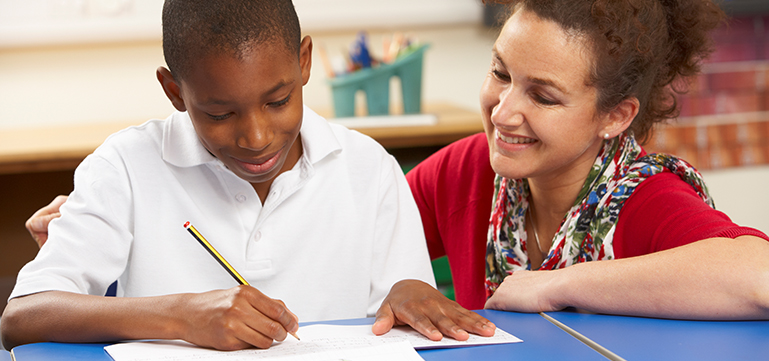Innovative approach to supporting more able and talented pupils

Quick links:
Context
Ynystawe Primary School in the lower end of the Swansea valley has195 pupils on roll from a wide range of social backgrounds. The school is committed to challenging all pupils to achieve the highest standards, including 17 pupils identified formally as more able and talented. The headteacher, the additional learning needs co-ordinator and the co-ordinator for more able and talented pupils ensure that all staff are fully committed to the school’s approach, and provide training and mentoring for new staff.
Activity
A whole-school approach to learning, called the ‘Leonardo effect’, develops pupils’ critical thinking and independent learning skills. During the first term of each year, pupils acquire skills and knowledge about a specific topic. In the second term, they manage their own learning about the topic. The third term is used to develop science and creative skills in relation to the topic. Teachers encourage pupils’ creativity, research, investigation and problem-solving skills throughout the year.
The headteacher evaluates standards through direct observation of lessons and through monitoring pupils’ output. This information is used to ensure smooth transition between year groups and key stages. The school uses an in-service training day each year for staff to evaluate their work, analyse pupil outcomes, and to plan for the year ahead.
Good and excellent features
The good and excellent features include:
- motivational leadership that ensures a whole-school approach and staff commitment;
- shared understanding of the kind of teaching that supports and challenges more able pupils to achieve at the highest levels;
- consistent approaches that pupils and parents understand; and
- creative approaches to developing higher-order thinking, problem-solving and oracy skills.
Impact and benefit
As a result of this work:
- the most able pupils achieve level 6 in one or more core subjects at the end of key stage 2;
- many pupils demonstrate very good knowledge and understanding of specific topics and their skills in oral and written English are often above the levels expected for their age; and
- pupils’ work in art and design is creative and imaginative.